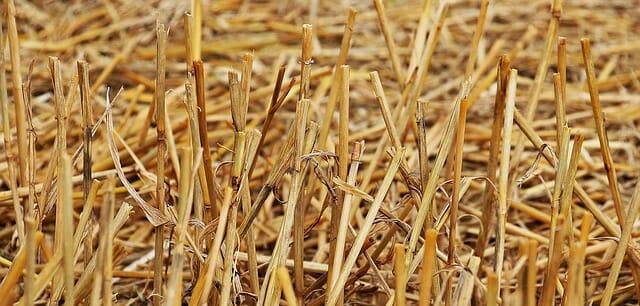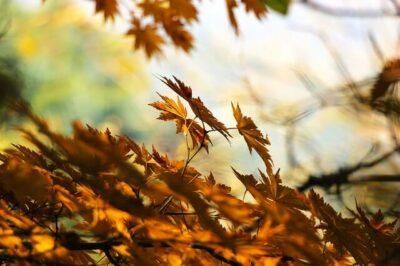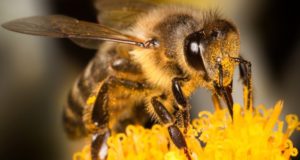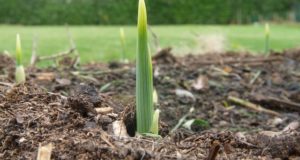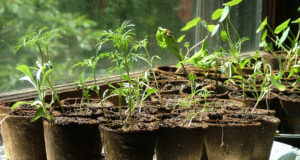Gardening season is well under way, which means it is time to think about mulching. Instead of running to your local lawn and garden store, though, consider organic mulch choices, which are readily available and provide more benefits than basic wood chips.
Benefits of Organic Mulch
You might be surprised at the multitude of choices gardeners have when it comes to mulching. Some people use newspaper, grass clippings, leaves and other options. While some people do spread landscape fabric around their plants to reduce weeds, organic mulch is a better choice.
- It is inexpensive. Living a sustainable lifestyle requires a sort of craftiness and ingenuity. We have to rely on the items we have at our fingertips. Instead of purchasing bags of wood chips, organic mulch can be things readily available in your backyard. The only cost may be the labor and time it takes.
- It prevents weeds. The obvious reason to use mulch is to prevent weeds. Mulch stops sunlight from reaching the weeds. If your primary goal is to reduce weeds, then two inches of mulch is the recommended amount.
- It adds nutrients to soil. One of the best reasons to use organic mulch is because it adds nutrients back into your soil. Over time, the mulch will decompose, putting nutrients right back into the ground. Grass clippings, for example, decompose quickly and are a great source of nitrogen.
- It retains moisture. It can be a daunting task to water your garden regularly. Mulch helps to retain the moisture already present in the ground.
Organic Mulch Choices
If you are interested in using organic mulch, there are several choices available to you. Let’s take a look at each one and the benefits.
1. Pine straw. This is a fantastic choice for suppressing weeds. Once wet, the straw tends to mat down, making it nearly impossible for weeds to break through. If you have pine trees on your property, the mulch will be totally free. You also should know that it does take a while for pine straw to decompose.
The All-Natural Fertilizer That Can Double Your Garden Yield!
Another downside to pine straw: It is a source of acid. Your soil will increase in acidity, which is OK for some plants. Gardeners must consider the plants they are growing and if those plants like acid. Veggies such as sweet potatoes, radishes and peppers are good candidates.
2. Grass clippings. We all love free, and grass clippings fall into that category. If you cut your grass, you have clippings. The abundance is a positive reason to use grass clippings. They also are a fantastic source of nitrogen. All plants need nitrogen to grow, but some plants, such as lettuce and spinach, benefit from extra sources.
There are two negatives to using grass clippings. They decompose quickly, so you will have to continue to add layers throughout the growing season. Also, some gardeners despise the smell of decomposing grass. You’ll notice it heavily after rain.
3. Shredded leaves. Fallen leaves contain minerals that the tree absorbed from the soil to aid its growth. As they decompose, leaves feed the earthworms, adding nutrients and microbes back into the soil. Gardens with sandy soil benefit from shredded leaves because they help to lighten the soil and retain moisture. Carbon, essential for balancing nitrogen, leeches into the soil as the leaves decompose.
The biggest negative is the look. Chances are you won’t win an award for the “Most Beautiful Garden of the Year.” It is worth the downside. Leaves must be shredded before used as mulch. Otherwise, water may not reach the soil. Also, never use leaves from walnut, eucalyptus or camphor laurel trees, as they have chemicals that stop plant growth.
4. Old hay. If you have access to old hay, your garden will thank you. While you could use fresh hay, the spoiled bales are cheaper and will add more nutrients to the soil. Over time, hay helps to act as a buffer and neutralize your soil. This could be a problem for some plants, but it is great for soil that is a bit too acidic.
The problem with using hay is that it is made from grass. It will have grass seeds that can cause weeds to grow in your garden. Since you probably want to avoid weeds, the best solution is to pile the old hay about a foot thick. At this depth, it is nearly impossible for weeds to grow through.
What organic mulch would you add to our list? Share your thoughts in the section below:
 Off The Grid News Better Ideas For Off The Grid Living
Off The Grid News Better Ideas For Off The Grid Living

